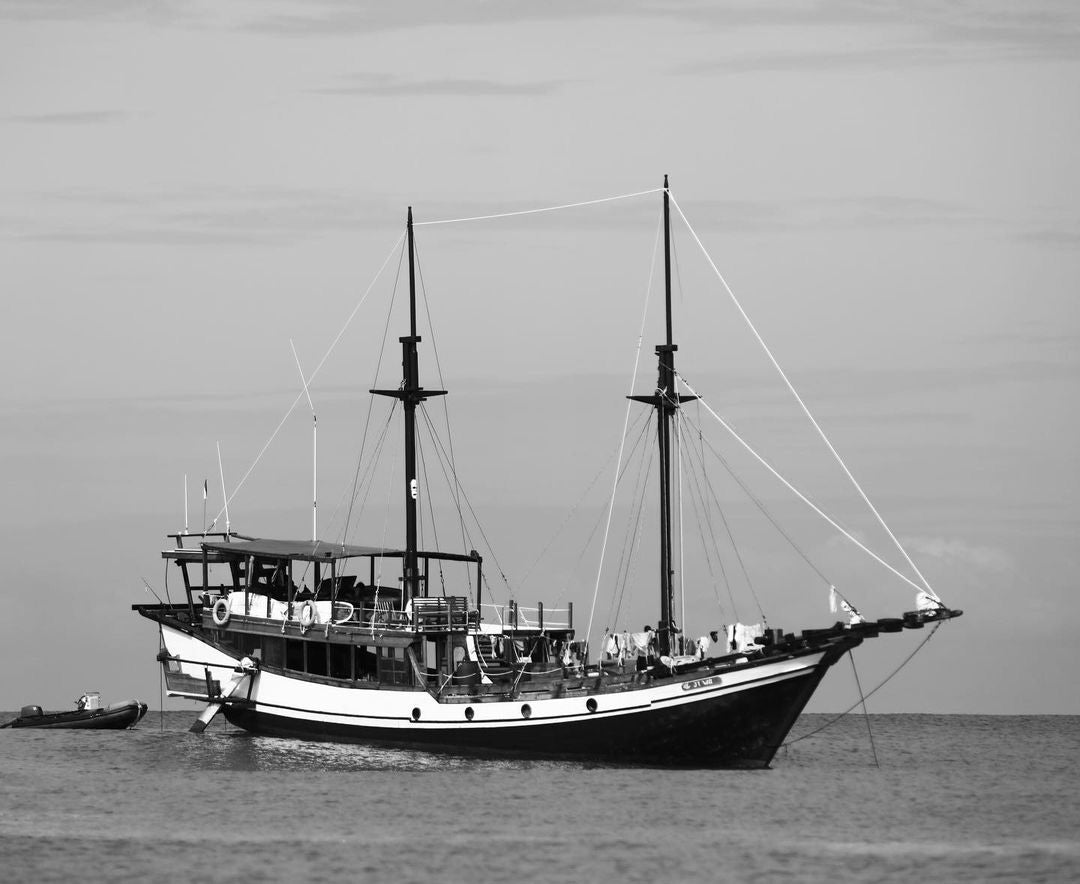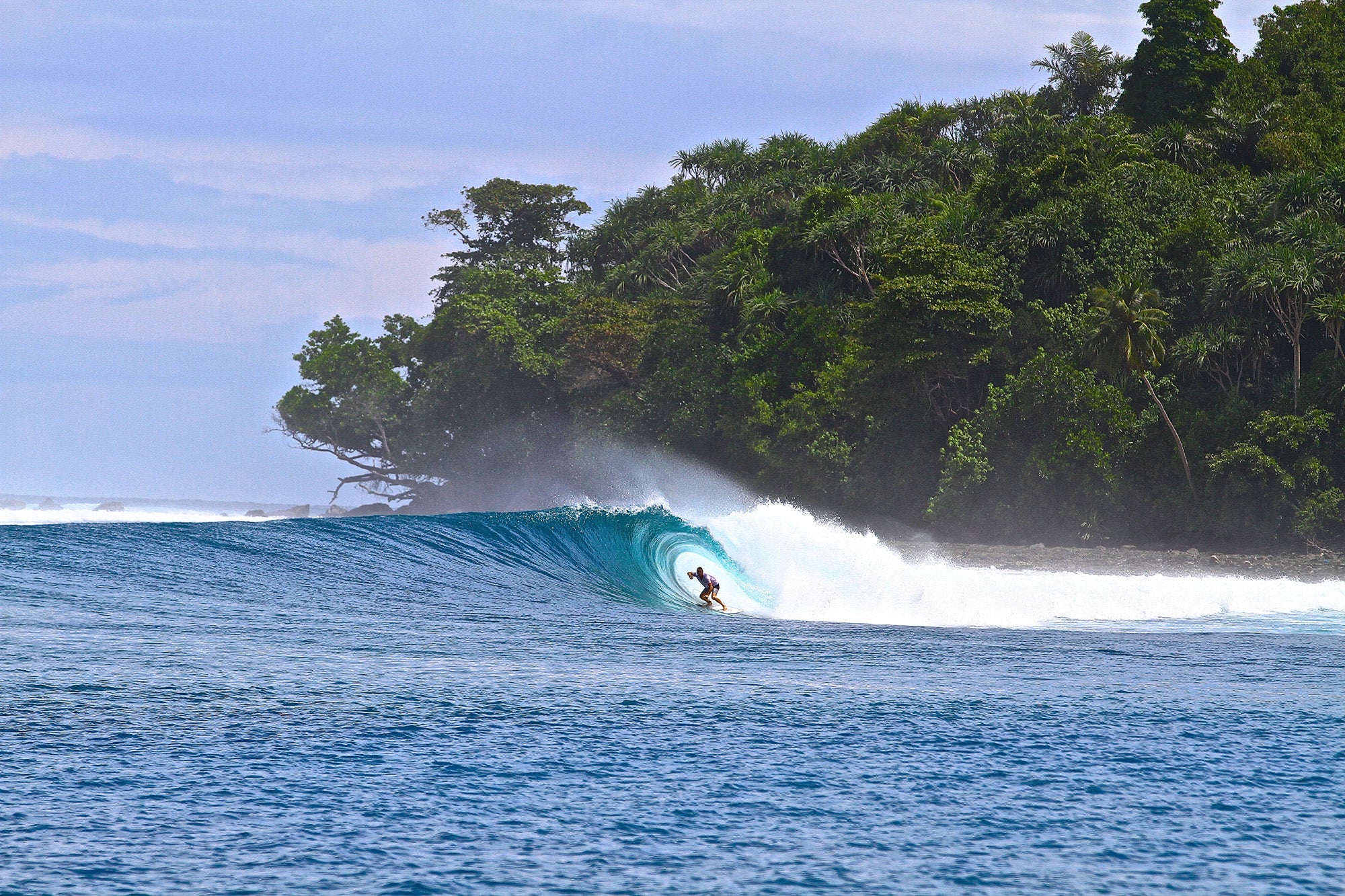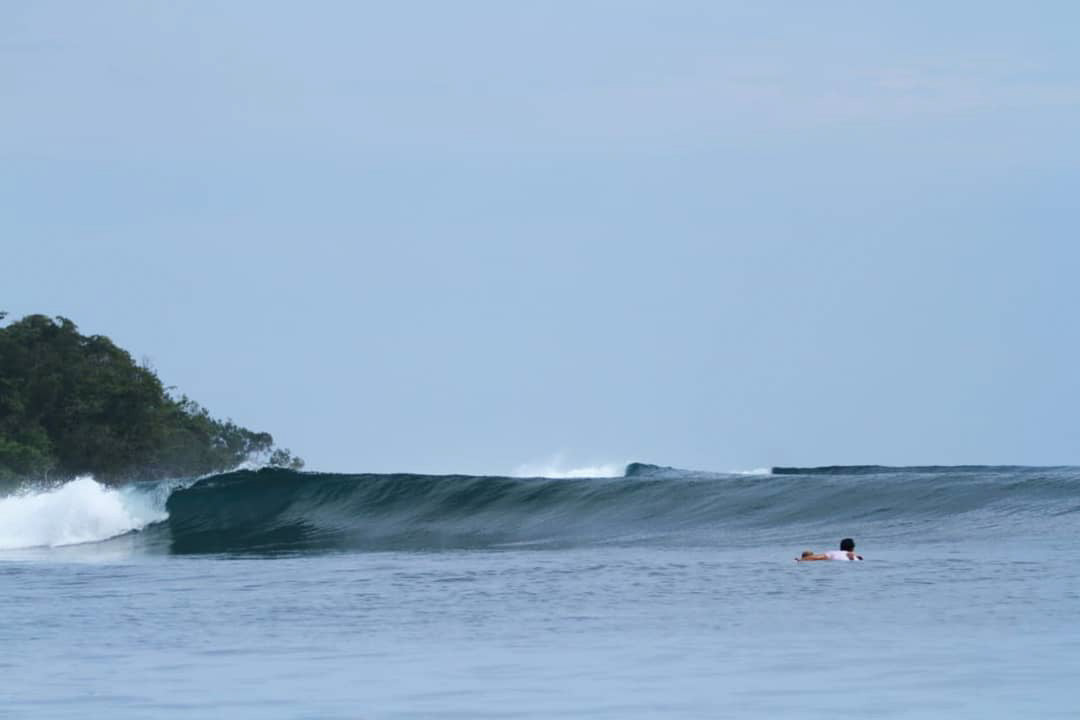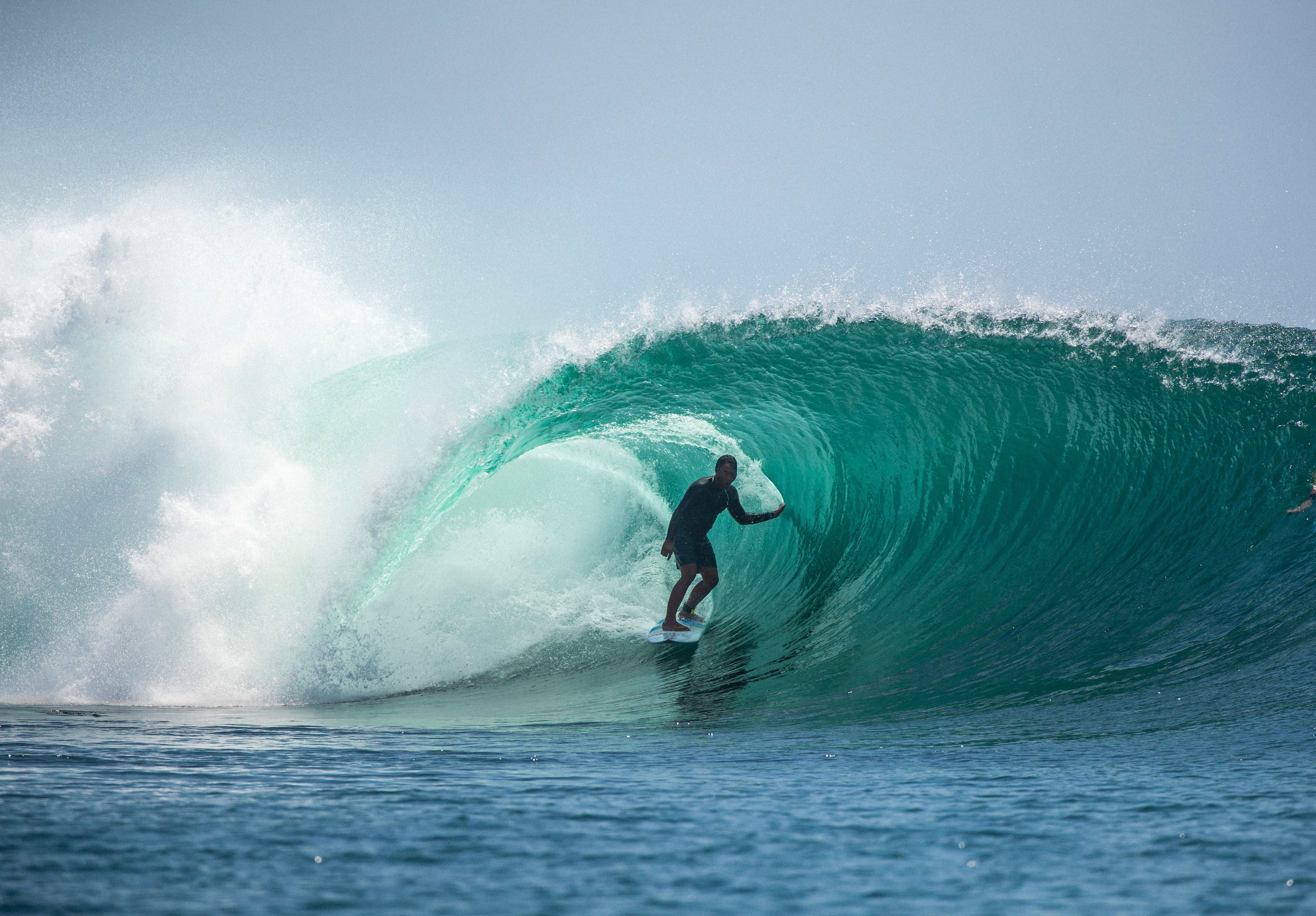The Drifter Journals
Tradewinds Adventures | Sliding Moments
We can waste our lives away yearning for the life that never was.
Those sliding doors moments; the girl in the bar, the vacation revoked, the no instead of a yes that sends us onto a tangent so gravitationally askew from what could have been that the question remains etched into our soul for the rest of days.It’s the nature of life.
Choice plagues us daily, from the smallest decision to a life-changing opportunity, and it is in those choices that we are given the power to turn the unremarkable into the exceptional.

Photo: @Yahiabarakah via @tradewindsfreediving
You may not believe it, but the south-west of England is home to some of the most passionate and dedicated surfers anywhere in the world. The community is core, two degrees of separation connecting everyone, and the fickle conditions and inhospitable climate only feed the fervour, instilling a passion that even an icy, onshore winter’s day can’t fade.
Euge Tollemache was born in this corner of the globe, the pointy foot of Britain harbouring his early years and weaning him on a diet of grey waters and frequently average waves. England does get good, and the swells that break on the northern coastline of England’s Cornish peninsula have given rise to some world-class surfers. It was on these same waves that Euge developed his skills, rising through the ranks, developing his surfing to a point where competition was a real possibility.
“I was sort of semi-professional, in a very loose way,” Euge admits. But his talents weren’t born solely of the English coast, and a nomadic addiction spurred his talents from an early age: “From the age of 16, I’ve always done six months in the UK and then six months travelling. In fact, I’ve only spent two Christmases in England since then.”

With his skills honed, Euge was presented with a paradigm shift. Chosen to represent his country as a competitive surfer, he was invited overseas on what would be most frothing grommets’ dream adventure. Yet Euge’s father had other ideas, and unlike most repressive parental guidance, they proved to be infinitely better:
“In about 1993 or ‘94 I got picked for a contest in Brazil to represent Britain in a competition similar to today’s ISA Games. It was 750 quid or something for the week. “My dad said to me, ‘for 750 quid you can go to Brazil and probably get knocked out in the first round, or I’ll give you the £750 and you can go to Indo.’
“In the old American Surfer Magazine, there used to be a cartoon called Wilbur Kookmeyer. There was this one cartoon that said ‘Padang Padang: so good they had to name it twice’! That obviously struck a chord with my old man and he said, ‘well, that’s where you’re going. You’re not going to some shitty beach break in Brazil, you’re going to Indo to surf Padang Padang because it’s so good they named it twice.’”

Photo: Wilbur Kookmeyer via Surfer Magazine
This was the inception of Euge’s transitory life, one that would span the next decade and a half. Summers would be spent in his homeland, toiling away to make bank, building budget for his next adventure. The northern hemisphere winters would find Euge in tropical waters - in many destinations, but increasingly in Indonesia.
He could have pursued his young career as a junior surfer, aware that it was unlikely to amount to a million-dollar Quiksilver contract, or feed his wanderlust and live a life more spontaneously crafted. It was a simple choice.
Slowly but surely, his six-month sojourns became eight, eight became 10, and within the early years of the new millennium he was searching for a way to make his time in Indo significantly more permanent.
South East Asia, South America, Hawaii - Euge’s travels weren’t confined to the Bukit Peninsula for long, but it was the Indonesian periphery that truly captivated him. Sumbawa, Simeulue, the Hinakos and Mentawais - these were the places he wanted to be, away from it all, aboard a boat and the ocean his home, at least for temporary periods.In 2000, fate threw the coin toss back into Euge’s hands. Out of money but not done with his trip, he was forced to seek work. A chef by trade, he found a place in the galley of a surf charter out of the Mentawais.
“I did that for a season or two,” he recalls. “Being a chef on the boat but also being a keen surfer, I would suss out where the best anchorages are, what spots worked on what conditions and so on. “Eventually, another operator said, ‘mate, get out of the galley and come and help my boat.”
Emerging from the rocking, sweaty, claustrophobic galley, his only job was to host the guests. Waves all day, beers all night, keeping safety in check of course, but his role was more as an amped-up, surf-hungry host than any of the more conventional ranks on board the charter.

For almost half a decade, his foundation had been secure; he knew that, no matter what unpredictable circumstances lay in wait for him somewhere in the world, he would return to England to replenish the funds for six months. Now, with his Indo life establishing its own sense of security, his life was complete, if remarkably bipolar.
From the galley to hosting to caretaking the first-ever land camp on Simeulue, Euge could guarantee that half of his year would be spent working somewhere in the Indonesian archipelago, just as he was assured that England’s summer months would be spent in the West Country.
For a time, this worked well. Visas, work permits, the fluctuating tourist seasons and so on made the indefinite move quite simply not an option, and his bisected lifestyle suited him perfectly. That would change in 2010.
The Jiwa rises high above the waterline, the traditional timber phinisi-style boat more akin to a pirate ship than a luxury surf charter. In a lineup of pristine, white motor cruisers it is a welcome connection to the handcrafted traditions of Indonesia and is always gazed upon in equal measures of curiosity, admiration and envy. Many prefer the sterility of a modern motor yacht, all clean lines, polished chrome and gleaming white formica, but for surfers a more rustic approach is often more preferable. The Jiwa feels like home, its warm timber interior cocoons you with familiarity, connecting you with the natural surroundings of the Indonesian islands and their many unspoiled surf breaks.
When Tradewinds Adventures first launched the Jiwa, it was with Euge Tollemache on board as surf guide and director, the western host in an almost exclusively local crew.


Photo: Chris Gassan via Tradewinds Adventures
“The guests really like the rustic, classic character of the Jiwa,” Euge remarks. “Guests often tell us how it looks like a pirate ship and fits so perfectly with the backdrop of the break and the islands.
“They often comment on how much nicer and more spacious it is, how much more deck space there is and how you can always find a quiet little spot all to yourself to just chill and read.
“Also, the timber absorbs the sound of the engine and the ocean is, so it feels more tranquil to most of the steel boats.“They’ve been around for hundreds of years, but we chose it primarily because it was available and affordable.”
Handbuilt from local timbers, the Jiwa, just as with all phinisis, is a floating testament to Indonesian craftsmanship. The nature of a wooden seagoing vessel does require continual upkeep, an annual vacation to the drydock a legal requirement and deckwork an ongoing process. But, unlike the conventional and characterless, modern steel or aluminium vessels, maintenance is performed locally and at a fraction of the cost, supporting local labour and maintaining the centuries-old tradition and craft.


“If you’ve got a stainless steel or aluminium boat, there may be less maintenance, but then you have to drive it to Thailand or somewhere to go on the dock and do welding there. At least with this boat, we can keep it in Indonesian waters, employ local chippies who know the boat and it keeps it all local and within the economy here.”
These elements combined make for a far more experiential trip. There is less separation between staff and guest, a kinship developing in even the shortest of voyages. Time on deck is almost equally as enjoyed as time in the water and longer journeys to discover more secluded breaks and better conditions are embraced, passengers content to simply chill and enjoy the passing scenery as the engine slowly chugs them to their next destination.
From the Mentawais, the Jiwa travels north in the busier season, breaking away from the hard-worn sea routes and more crowded breaks, favouring seclusion over notoriety and exploring breaks that few others frequent.
Each trip is handcrafted. With the majority of clients repeat customers, Euge communicates with them well in advance, questioning everything from dietary requirements and skill levels to their previous trips and preferred destinations. He will try his utmost to never repeat an experience, offering a fresh route, new breaks and unique adventure, regardless of how many times someone has been aboard the Jiwa.
“One of the good things about repeats is that they put their faith in my team,” Eugene says. “New customers may be surfing perfect waves at a deserted break, but they’ll ask, ‘why isn’t anyone else here? There must be somewhere better.’ So we’ll motor for three hours to go to a famous break with four other boats and thirty guys in the water! Once they’ve seen both sides, they realise that their entire trip is in good hands.”
It’s not just surf. Jiwa’s sister boat ventures to Raja Ampat to indulge passionate freedivers in the calmer waters of the eastern archipelago, and even on a surf trip, all guests are taken into account. Families will be taken ashore to bird watch, trek across deserted islands or collect litter from the beaches, and a connection to the region’s nature and people is always both instilled and encouraged.



Support of local communities is essential to life aboard the Jiwa. It permeates every aspect of each bi-monthly, 11-day trip, with staff almost exclusively local and crew paid year-round despite the nine-month season. Their families too are employed wherever possible, and support is given to their existing network of Indonesian locals as possible.
But this perspective of responsibility reaches beyond the gunwales of the Jiwa, across islands and into the furthest reaches of their voyages.
“When we are at some of the really, really remote surf spots, we’re still looking for ways to support locals and the environment,” Euge shares. “There’s one island we go to that literally has just one family on it - it’s miles from anywhere. Every time we visit, I’ll bring something with me. Money doesn’t mean anything because they’ve got nowhere to spend it, but I’ll always bring a care package of some of the simplest things you could imagine. It might be phone credit, a bag of sugar, some coffee and tea, toothpaste, washing up liquid and some basic first aid supplies. It’s nothing to us, but it’s so important to them. Antibiotics and Betadine can go a really long way in these really remote locations.


“Some of these simple acts have probably saved a few lives. We’ve treated fishermen with infections of malaria, given simple first aid for cuts and so on. These things don’t seem so dangerous to us, but when you’re in the middle of nowhere and have nothing with you, it can literally be the difference between life and death.”
From his own sliding moment, foregoing a contest slot in Brazil for the perfection of Padang Padang, Euge is paying forward, changing fate with a simple gesture, from a job aboard the Jiwa to a bag of rice for remote families.
His own past, his travels, the fortune he has been gifted and the locals he shares his time with all gather, unify and unfold at the feet of his guests, making time on the Jiwa not just a week or two of perfect waves, but a connection to something bigger, an experience beyond the surf and, perhaps, a fleeting glimpse through sliding doors.






JOIN TRADEWINDS ADVENTURES ON SOCIAL MEDIA:






